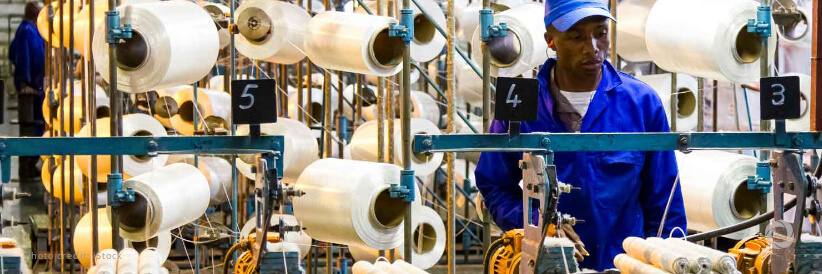The United Nations Industrial Development Organization (UNIDO) is pleased to announce the conclusion of a new funding arrangement supporting eight projects aimed at fostering inclusive and sustainable industrial development in Africa and the Middle East.
This is made possible through Japan’s supplementary budget, including a new initiative focused on economic development in Africa within the framework of the Tokyo International Conference on African Development (TICAD) process.
A project in Ethiopia aims to improve food security and job creation by strengthening technical and vocational education and training. It will support skills development in both food and non-food sectors, boosting agricultural productivity, creating added value, and providing sustainable livelihood opportunities for vulnerable groups.
To address the challenges posed by severe flooding and cholera outbreaks in Lagos, Nigeria, an initiative will train informal food and water vendors, as well as waste workers, in best practices for hygiene, waste management, and infection prevention. The project will also provide essential toolkits to support public health resilience.
Amid ongoing economic challenges, a project in the State of Palestine will provide support to the manufacturing sector. It will focus on improving the productivity, energy efficiency, and overall management performance of affected enterprises while strengthening institutional capacities for long-term industrial development.
With many internally displaced persons still struggling to rebuild their lives, a project in Iraq will promote entrepreneurship and small business development through targeted training and support programs. By promoting economic opportunities, the initiative will contribute to economic and social stability and sustainable industrial growth.
Building on the experience of UNIDO and Japan working with advanced 3D-printing technology, a project in Nigeria will increase the availability of prosthetic limbs for landmine survivors, improving their mobility and social re-integration. Nigeria will serve as a pilot location for scaling up across Africa.
An initiative in Sudan will strengthen agricultural cooperatives by introducing Japanese agro-ecological technologies. The project aims to improve food security, reduce post-harvest losses, and foster inclusive rural development. Special emphasis will be placed on empowering women farmers and promoting sustainable, community-based business models.
Building on previous UNIDO initiatives, a regional project spanning Egypt, Kenya, Morocco, Nigeria, Senegal, South Africa, the United Republic of Tanzania, and Zambia will facilitate knowledge exchange and training to tackle plastic pollution in Africa. It will introduce circular economy solutions, support sustainable business models, and host learning programs in Japan as part of the preparations for TICAD 9.
By promoting circular economy principles, a project in the United Republic of Tanzania will support the transformation of biomass waste into alternative energy sources and sustainable products. Training, technology demonstration, and market development activities will help reduce deforestation and promote resource efficiency.
These eight projects exemplify Japan and UNIDO’s shared commitment to promoting economic resilience, technological innovation, and industrial sustainability across Africa and beyond. Together, they aim to address pressing challenges in food security, public health, circular economy, and industrial recovery, advancing the vision of inclusive and sustainable industrial development worldwide.
To further promote the long-standing partnership and highlight our commitment to Africa, UNIDO and the Permanent Mission of Japan will organize a panel exhibition and kick-off event in mid-March 2025.

